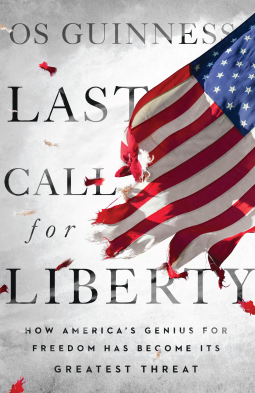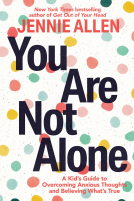
Last Call for Liberty
How America's Genius for Freedom Has Become Its Greatest Threat
by Os Guinness
This title was previously available on NetGalley and is now archived.
Send NetGalley books directly to your Kindle or Kindle app
1
To read on a Kindle or Kindle app, please add kindle@netgalley.com as an approved email address to receive files in your Amazon account. Click here for step-by-step instructions.
2
Also find your Kindle email address within your Amazon account, and enter it here.
Pub Date Oct 02 2018 | Archive Date Dec 14 2018
InterVarsity Press | IVP
Talking about this book? Use #LastCallForLiberty #NetGalley. More hashtag tips!
Description
Logos Bookstore Association Award
World Magazine Book of the Year
The hour is critical. The American republic is suffering its gravest crisis since the Civil War. Conflicts, hostility, and incivility now threaten to tear the country apart. Competing visions have led to a dangerous moment of cultural self-destruction. This is no longer politics as usual, but an era of political warfare where our enemies are not foreign adversaries, but our fellow citizens.
Yet the roots of the crisis are deeper than many realize. Os Guinness argues that we face a fundamental crisis of freedom, as America's genius for freedom has become her Achilles' heel. Our society's conflicts are rooted in two rival views of freedom, one embodied in "1776" and the ideals of the American Revolution, and the other in "1789" and the ideals of the French Revolution. Once again America has become a house divided, and Americans must make up their minds as to which freedom to follow. Will the constitutional republic be restored or replaced?
This grand treatment of history, civics, and ethics in the Jewish and Christian traditions represents Guinness's definitive exploration of the prospects for human freedom today. He calls for a national conversation on the nature of freedom, and poses key questions for concerned citizens to consider as we face a critical chapter in the American story. He offers readers a checklist by which they can assess the character and consequences of the freedoms they are choosing.
In the tradition of Alexis de Tocqueville, Guinness provides a visitor's careful observation of the American experiment. Discover here a stirring vision for faithful citizenship and renewed responsibility for not only the nation but also the watching world.
Advance Praise
"It will be a tragedy of inestimable proportions for the American people if that great nation eats its own legendary commitment to freedom from within. Equally, to lose the leadership of the world's most powerful champion of liberty would be truly dangerous for non-Americans everywhere in these increasingly unsettled times. Os Guinness has gifted us magnificently with the insights and understanding of a lifetime in this book, which really needs to be read—urgently—across the length and breadth of the world."
-John Anderson, deputy prime minister of Australia 1999-2005
"Os Guinness has stood as a beacon of eloquence and insight. In a host of important books, he has chronicled the struggle of those who resist the modern world's descent into carnival culture. Last Call for Liberty is his masterwork—an urgent guide that leads out of the maze America has wandered into. For those who seek to understand the best of freedom's vital gifts, Guinness is the master class leader."
-Shelby Coffey III, vice chairman of the Newseum and former editor of the Los Angeles Times
"A timely and important book from one of the most insightful observers of American society and politics. Guinness argues that America's future depends on learning the right lessons from America's past. Provocative without being incendiary. Sobering without being gloomy. Inspiring without being glib."
-Peter Feaver, professor of political science at Duke University
"If you care about the future of America—no matter where you are on the political spectrum—then do yourself a favor and read this book. I believe you will be encouraged to look at America in a new light, and hopefully all who love her will find a new energy to make her healthy again and keep her strong. Freedom-loving people everywhere will be grateful you did."
-John Brandon, former vice president of International Apple Inc.
"With moral clarity and a deep sense of history, Os Guinness discerns the taproot of America's republican achievement as well as the forces that threaten to tear it asunder. In this penetrating critique of American democracy, Guinness emerges as the English voice of Alexis de Tocqueville—and not a moment too soon. Perhaps only an Englishman could deliver such a powerful reminder to Americans about why their revolution in human liberty has succeeded where others have failed. Against the prophets of gloom, Last Call for Liberty charts a pathway toward American renewal rooted in a bracing vision of human freedom."
-Joseph Loconte, associate professor of history at the King's College in New York City, author of God, Locke, and Liberty: The Struggle for Religious Freedom in the West
Available Editions
| EDITION | Other Format |
| ISBN | 9780830845590 |
| PRICE | $30.00 (USD) |
Average rating from 3 members
Featured Reviews
 Conrade Y, Reviewer
Conrade Y, Reviewer
What is the root cause of America's problems? What is true liberty? How free is America? In fact, according to respected theologian and cultural observer, Os Guinness, the problem is not the world nor the world against America. It is America herself becoming her "most bitter enemies." They are their own threat to freedom. Donald Trump is not the problem. He has simply turned over the carpet that had covered the problems of the past America had swept under. From political tussles to socio-economic divisions, it is becoming a society where everyone think they are right and others are wrong. Finding the root cause will help us address the greatest threat to America. This is essentially the search for freedom. What then is the key to freedom? Os Guinness shows the way with a series of questions with the single purpose of helping American minds to figure out the "character and condition of freedom." He raises questions like:
What do Americans mean by liberty?
Freedom means different things to different people, so what kind of Freedom does America aspire to become?
What is the difference between a freedom fighter and a terrorist?
How do we allow the conflicting views to exist without breaking up the nation?
What is America fighting for?
What is the difference between the French Revolution and American fight for freedom?
Looking at the monuments in America can give us a clue about America's aspirations. Think of the "Statue of Liberty," the "Land of the Free," "Freedom Trail," "Liberty Bell Center," etc. With so many cultural pointers to liberty, Guinness gives us ten fundamental questions to address this basic theme. One chapter is allocated for each question, making the book an easy reference book for anyone seeking clarity on any of the questions.
Do You Know Where Your Freedom Came From?
Are There Enough Americans Who Care About Freedom?
What Do You Mean by Freedom?
Have You Faced Up to the Central Paradox of Freedom?
How Do You Plan to Sustain Freedom?
How Will You Make the World Safe for Diversity?
How Do You Justify Your Vision of a Free and Open Society?
Where Do You Ground Your Faith in Human Freedom?
Are You Vigilant About the Institutions Crucial to Freedom: Republicanism or Democracy?
Are You Vigilant About the Ideas Crucial to Freedom: Which Revolution Do They Serve?
The first question alone stumped many people when asked. Instead of seeking out answers from the 18th Century, Guinness takes us further back to the Jewish ancient history; the exodus from slavery to freedom. That is the source of modern American liberty. He distinguishes government as those based on founding rather than types of government. The four different types of founding are: Organic societies that are tribal or family; hierarchical; contractual; and covenantal. Modern American liberty is based on the latter. In the second question, Guinness probes behind the reasons for modern American perspectives of freedom and takes a dig at the way America has trumpeted itself as "torchbearers" of freedom to the world. On the oft self-congratulatory, arrogant, and self-promoting forms of descriptions, Guinness sees beneath them a mesh of inward looking inclinations that are based on individualism, consumerism, and narcissism. Taken in this context, freedom essentially means what is in there for me without any interest in how it impacts others. In response, Guinness asserts that true freedom is one of the human will; of commitment; of human responsibility; of having freedom not as an end in itself, but as a means to a greater goal. We learn about the positive (freedom for) and negative (freedom from) forms of freedom. Freedom comes with a cost. The greatest paradox is that the greatest enemy of freedom is freedom itself. He warns us that freedom is just one generation away from being lost. For freedom to flourish, we need order and self-restraint. The one who is most free is not the one who controls others but oneself. Responsibility is a huge thing in true freedom. In order to sustain freedom, checks and balances are not enough. We need separation of powers. We need to move from negative to positive forms of freedom. We need freedom to be anchored on fundamental faith. For faith in itself is a voluntary act of freedom of expression. The sixth question is about freedom and diversity, something that is increasingly relevant in our society. Secular or religious, we need space for all to have their own expressions of faith. That means secular authorities should allow the freedom of religious expressions in public spheres, along with the freedom for atheists and secularists to parade their own views openly. Instead of pandering to the erroneous statement of "secular societies," we need to re-state that we are a "free society."
Guinness has many interesting perspectives about modern society and their struggles with the problems of today. One of the major things is diversity. Even in an increasingly pluralistic society, there remains a widening gulf between the left and the right; the conservative and the liberal; and various divisions of all kinds. How do we enable true freedom of beliefs? In order to get a clearer way forward, we need to get at the roots of the problem. Calling it the Radical Rs, he points out that the "Reducers" have radically shrunk the space for freedom of religion. They also shrink "freedom of religion" into "freedom of worship." The "Removers" had moved toward "freedom from religion" instead of maintaining the rightful "freedom of religion." The "Rebranders" argue against the freedom of religion by attacking it as a power play. Such people turn the "freedom of religion" advocates into some kind of bigot party. They then attempt to turn society against religious people by saying they are attacking the rights of minority groups. They forget that religious freedom is actually more of a shield rather than a sword. The "Reimaginers" dream of a new world just like John Lennon's song, Imagine, which is about a world where one can be happy without any common authority or domain. This also reduces religion into some inconvenient corner of society in favour of this utopia. He makes a powerful observation about the state of the cultural wars with the 4Rs continuing to shrink or subvert the basic freedom of religion.
My Thoughts
First, we must acknowledge the great divide in our societies today. Whether it is pro-something or anti-something, any strong assertion will create an equal and opposite reaction. In other words, one extremity will create a polar opposite extremity. Recognizing such a divided state is crucial to determining a need for reconciliation and re-engagement. For diversity to exist, we must make room for different worldviews to co-exist. Granted that truth is to be upheld at all times, we can adopt a stand of seeing the different worldviews as efforts to reveal and to understand truth. No one effort is perfect. This acknowledgment should spearhead a greater emphasis on creating a "civil public square" led by a political framework that underscores the rights and freedoms of every citizen. This framework must assert the "three Rs of freedom of thought and conscience: rights, responsibilities, and respect." Guinness is spot on with regard to the 3Rs in contrast to the 1R (namely, rights) that most of society seem to focus upon nowadays. The sooner we recognize the problem with our short-sighted view of the problem, the better it will be for recovery and renewal.
Second, freedom is about returning to the basics of covenanting. It is not about contractual agreements. Neither is it about a marriage of ideas of convenience. Covenant entails commitment and conviction. This avoids the extremes of chaos and control. The former is too liberal and allows society to descend into splintering groups that disunites and disenfranchises society at large. The latter instills a totalitarian regime and mindset that insists on conformity more than diversity. With a covenant, we go back frequently to our fundamental laws and liberties enshrined in our nation's constitutions. Chaos turn freedom into licentiousness. Control limits freedom strictly according to one set of interpretation. Learning to navigate between these two extremes will expand the scope of community space and diversity. This is just the starting point as details will still need to be fleshed out with regard to what covenanting means for each society. It is hoped that the central agreement toward this covenant would bind people together in regular dialogues and constructive conversational moments.
Third, there are many powerful insights with regard to the American culture and political climate. The author's chief concern is about preventing America from falling further apart. By focusing on the theme of freedom, Guinness has touched a raw nerve and central concern among many Americans. Freedom or liberty is something often talked about but rarely understood in the way that Guinness has done. That is why this book is a gift for America and the world to learn from. By understanding the American context, perhaps the rest of the world will be better able to design their own versions of freedom in their respective contexts.
For those of us who are concerned about the growing divisions in our cultures, pick up this book. With every page glistening with insights, I am sure that the patient and thoughtful reader will be able to grasp not only the great need for America but also the deep passion of the author.
Os Guinness is an English author and social critic, born to missionary parents to China. He is also the great-great-great-grandson of Arthur Guinness, from the famous Irish brewing company.
Rating: 5 stars of 5.
conrade
This book has been provided courtesy of InterVarsity Press and NetGalley without requiring a positive review. All opinions offered above are mine unless otherwise stated or implied.
 Daniel L, Reviewer
Daniel L, Reviewer
Os Guinness' new book Last Call for Liberty is definitely one of the most thought-provoking books that I've read in a while. He examines liberty, what it is, how it used to be defined, what it means now, and how to preserve it. While I may not necessarily agree with all of Guinness' conclusions, the book forced me to carefully consider what liberty is and how it is to be maintained. Last Call for Liberty is rife with quotes and historical background on the concept of liberty. Guinness also ties the American conception of liberty back to the covenantal form of government that God established with Israel under the leadership of Moses. The book's emphasis is that liberty can only be preserved when it is inseparably bound to responsibility. Much of the book is about explaining Lord Moulton's definition: "Liberty is obedience to the unenforceable." This understanding is contrasted with today's common view of liberty, the pursuit of whatever the individual wants at the moment. While this book is a bit dense at times and occasionally strays off topic, it is nonetheless an extremely worthwhile read. I highly recommend it! I received a digital copy of this book for free from the publisher and was not required to write a positive review. The opinions I express in this review are entirely my own.
Readers who liked this book also liked:
Harold Earls, IV; Rachel Earls
Biographies & Memoirs, Parenting, Families, Relationships








